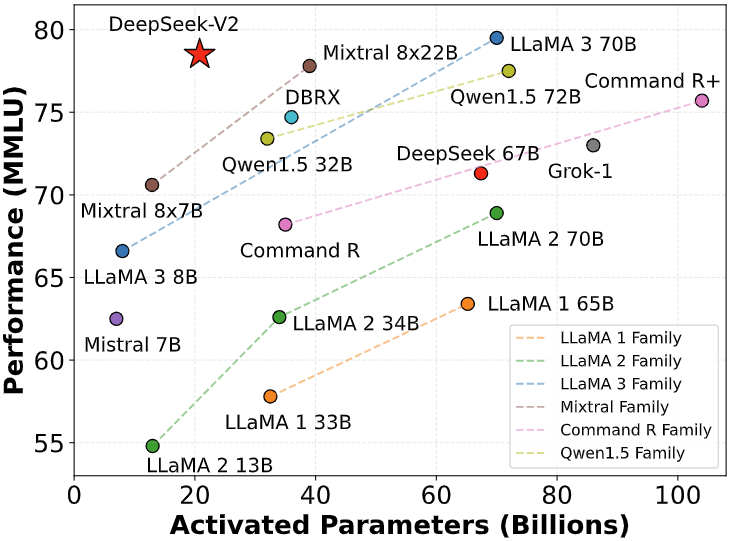Richard Whittle receives funding from the ESRC, Research England and was the recipient of a CAPE Fellowship.
Stuart Mills does not work for, consult, own shares in or receive financing from any business or organisation that would take advantage of this article, and has divulged no relevant associations beyond their scholastic appointment.
Partners
University of Salford and University of Leeds provide financing as establishing partners of The Conversation UK.
View all partners

Before January 27 2025, it's fair to say that Chinese tech business DeepSeek was flying under the radar. And then it came considerably into view.
Suddenly, everybody was speaking about it - not least the investors and executives at US tech firms like Nvidia, Microsoft and Google, which all saw their company values topple thanks to the success of this AI startup research study laboratory.
Founded by a successful Chinese hedge fund manager, the laboratory has actually taken a different approach to artificial intelligence. Among the significant distinctions is expense.

The development expenses for Open AI's ChatGPT-4 were stated to be in excess of US$ 100 million (₤ 81 million). DeepSeek's R1 model - which is utilized to generate material, fix logic problems and produce computer code - was supposedly used much fewer, less powerful computer chips than the likes of GPT-4, leading to costs declared (however unverified) to be as low as US$ 6 million.
This has both financial and geopolitical impacts. China is subject to US sanctions on importing the most sophisticated computer system chips. But the reality that a Chinese startup has been able to build such an advanced model raises questions about the effectiveness of these sanctions, and whether Chinese innovators can work around them.
The timing of DeepSeek's new release on January 20, as Donald Trump was being sworn in as president, signalled a challenge to US dominance in AI. Trump reacted by describing the moment as a "wake-up call".
From a financial point of view, the most noticeable result may be on customers. Unlike competitors such as OpenAI, which just recently started charging US$ 200 per month for access to their premium designs, DeepSeek's similar tools are presently free. They are also "open source", permitting anybody to poke around in the code and reconfigure things as they want.
Low expenses of development and efficient usage of hardware seem to have actually paid for DeepSeek this cost benefit, users.atw.hu and have actually already forced some Chinese competitors to decrease their costs. Consumers should expect lower costs from other AI services too.
Artificial investment
Longer term - which, in the AI market, can still be extremely quickly - the success of DeepSeek might have a big impact on AI financial investment.
This is because up until now, links.gtanet.com.br almost all of the huge AI business - OpenAI, Meta, Google - have been struggling to commercialise their designs and be rewarding.
Previously, this was not always a problem. Companies like Twitter and Uber went years without making revenues, prioritising a commanding market share (lots of users) instead.
And business like OpenAI have actually been doing the exact same. In exchange for continuous financial investment from hedge funds and other organisations, they promise to build a lot more effective designs.
These models, the business pitch probably goes, will enormously improve productivity and then success for services, which will end up delighted to pay for AI products. In the mean time, all the tech companies require to do is gather more information, purchase more powerful chips (and more of them), and develop their models for longer.
But this costs a great deal of money.

Nvidia's Blackwell chip - the world's most powerful AI chip to date - costs around US$ 40,000 per unit, and AI companies often need 10s of thousands of them. But already, AI companies have not truly had a hard time to attract the essential financial investment, even if the amounts are huge.
DeepSeek may alter all this.
By showing that developments with existing (and possibly less sophisticated) hardware can achieve comparable performance, it has provided a caution that tossing money at AI is not ensured to pay off.
For instance, prior to January 20, it may have been presumed that the most advanced AI designs require huge information centres and other facilities. This suggested the similarity Google, Microsoft and OpenAI would deal with minimal competition because of the high barriers (the vast cost) to enter this market.
Money concerns

But if those barriers to entry are much lower than everybody thinks - as DeepSeek's success recommends - then numerous massive AI financial investments suddenly look a lot riskier. Hence the abrupt result on big tech share costs.
Shares in chipmaker Nvidia fell by around 17% and ASML, which creates the devices required to produce sophisticated chips, likewise saw its share rate fall. (While there has been a minor bounceback in Nvidia's stock cost, it appears to have settled below its previous highs, reflecting a new market reality.)

Nvidia and ASML are "pick-and-shovel" companies that make the tools needed to create a product, rather than the product itself. (The term comes from the concept that in a goldrush, the only individual ensured to earn money is the one offering the choices and shovels.)
The "shovels" they sell are chips and chip-making equipment. The fall in their share rates originated from the sense that if DeepSeek's much more affordable method works, the billions of dollars of future sales that financiers have priced into these companies might not materialise.
For the similarity Microsoft, Google and Meta (OpenAI is not publicly traded), the expense of building advanced AI might now have fallen, implying these firms will have to spend less to remain competitive. That, for them, might be an advantage.
But there is now doubt regarding whether these companies can successfully monetise their AI programmes.
US stocks comprise a traditionally large percentage of global financial investment right now, and innovation companies make up a historically big percentage of the value of the US stock exchange. Losses in this industry may require investors to offer off other investments to cover their losses in tech, causing a whole-market decline.
And it should not have come as a surprise. In 2023, a leaked Google memo cautioned that the AI industry was exposed to outsider disturbance. The memo argued that AI companies "had no moat" - no security - versus rival designs. DeepSeek's success may be the evidence that this holds true.








